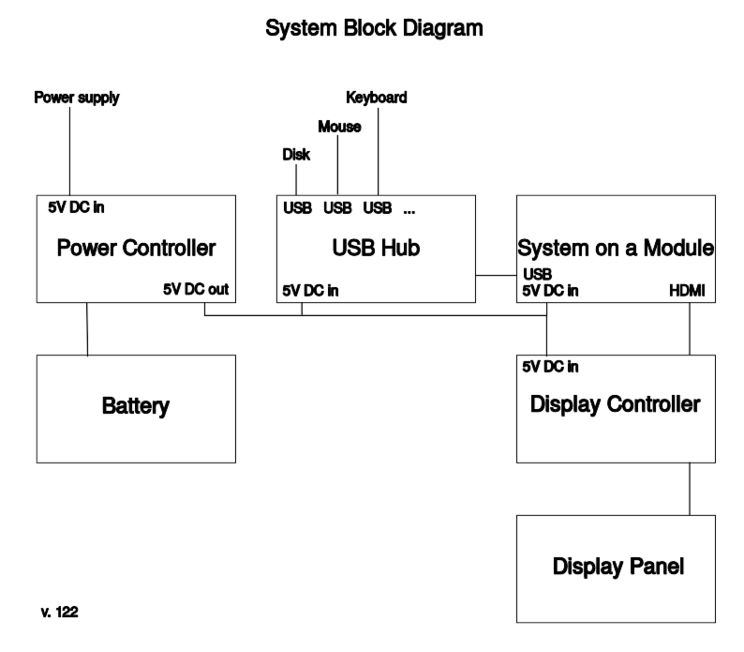Difference between revisions of "Specifications"
| Line 28: | Line 28: | ||
For more see our [[I/O USB]] page. | For more see our [[I/O USB]] page. | ||
| − | ==Display Controller and panel== | + | ==Display Controller and a [[screen panel]]== |
Provides interface to display panel by HDMI | Provides interface to display panel by HDMI | ||
Revision as of 20:44, 9 March 2021
This page documents features from more engineering point of view. For a more user-centric point of view, see Features.
Major Balthazar parts are:
Power Controller and battery
These supply power to the rest of the system, particularly the System on a Module, USB Hub and Display subsytem. It also manages battery.
It should be capable enough to run some USB connected hardware.
See more: Power Supply
System on a Module (SoM)
This is the main system board, the computer. Boards from different makers should be supported.
Minimum of ports is required for wider compaitibility. These are: Power, USB and HDMI.
See more: System on a Module
I/O USB hub
IO-board basically means connectivity with peripheral devices. These can be seen as on-board and out-board. On-board devices include: keyboard + trackpad, webcam and optional audio-card. USB is the usual solution for this.
For more see our I/O USB page.
Display Controller and a screen panel
Provides interface to display panel by HDMI
Panel slim screen.
Resolution: 1920 x 1080
Aspect Ratio: 16:9
Pixel Pitch(mm): 0.1529 x 0.1529
PPI: 166
Active Area(mm): 294.06 x 165.54
Outline(mm): 299.96 x 186.92
Luminance(nits): 300
View Angle (U/D/R/L): 89/89/89/89
Contrast Ratio: 800:1
Support color: 16.7M
Color Depth: 8 bit
Color Gamut (NTSC): 72%
Response Time(ms): 25
Power consumption: 3.7
Backlight: LED
Weight: 170 g
Frame Rate: (Hz)60Hz
Electrical Interface: DP 1.3
Ultra-slim thickness: 2mm
Case
Keyboard and Touch-pad
See more: Keyboard
Software
Software depends on a System on a Module used.
See more: Software
